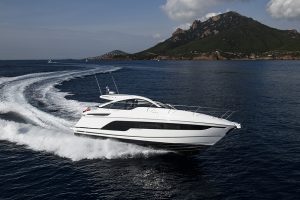If you go down to the woods today…
Here’s the latest official line from the BMIF on what’s open and what’s closed as a result of the Foot and Mouth outbreak
Many members will be aware that both British Waterways and the Environment Agency have taken action in recent days in support of the Government effort to control the outbreak of Foot and Mouth Disease. The legal positions of BW and EA are different and this is reflected in the approach being taken by each body.
British Waterways has closed all towpaths in rural areas that have been designated as infected areas or where local authorities are using power to restrict rural access. In addition, it has stopped navigation for non-essential purposes through all the same areas. On rivers, where there is a public right of navigation, the Environment Agency has issued guidance, requesting people not to navigate in high risk areas and to take MAFF advice in respect of other areas of the countryside.
On the canals, 70% of the system in England and Wales is effectively closed with only urban areas remaining open to navigation. Since the 1968 Transport Act there has been no public right of navigation on the canal system. Navigation on the canals is a permitted right at the discretion of the owners and British Waterways is acting within its legal rights to close navigation in support of Government efforts to control the spread of the disease. Government (DETR) has confirmed this position.
Both BMIF and APCO have been in direct continuous contact with British Waterways regarding the impact on the inland industry and particularly the severe implications for hire boat companies. Lines of communication have been opened up directly with MAFF, DETR and the Department of Culture Media & Sport who will be staging a summit to address the implications of the outbreak for the tourism industry. The BMIF and APCO will represent the hire boat sector at this summit to convey the impact on rural tourism and explore the scope for compensation.
The BMIF will press Government to understand the financial implications for the hire boat sector, with potential losses estimated as being £1.5 million in the month of April alone, affecting the viability of this sector of the industry.
We will be drawing together a number of selected case examples from members over the next few days to strengthen our case to Government. Ways of alleviating the current hardship being experienced by operators are being pursued with central Government and British Waterways. BW has indicated that it will discuss with individual hire and hotelboat operators measures to mitigate the effect on their businesses including the deferment of licence stage payments to 1 June 2001 (instead of 1 April 2001).
British Waterways has given an assurance that it will seek to re-open all or part of the system as soon as humanly possible. Additionally, it has made an offer to discuss an emergency marketing campaign to promote waterways holidays once the crisis is over, offering to match industry contribution on a pound for pound basis.
Members are advised to familiarise themselves with the situation in their area through contact with local BW offices. In many restricted areas County Councils have assumed powers and it will be important to familiarise officials with the importance of the strategic importance of the hire boat sector to the local economy.
The BMIF has established a Crisis Management Team to support members and represent the industry. The following members of staff will be fully familiar with the situation and be able to answer members questions;Howard Pridding (first point of contact)John ClarkeNigel JohnFergal Quinn.Please contact the BMIF on 01784 223600.
Click here for British Waterways’ Foot and Mouth advice.








